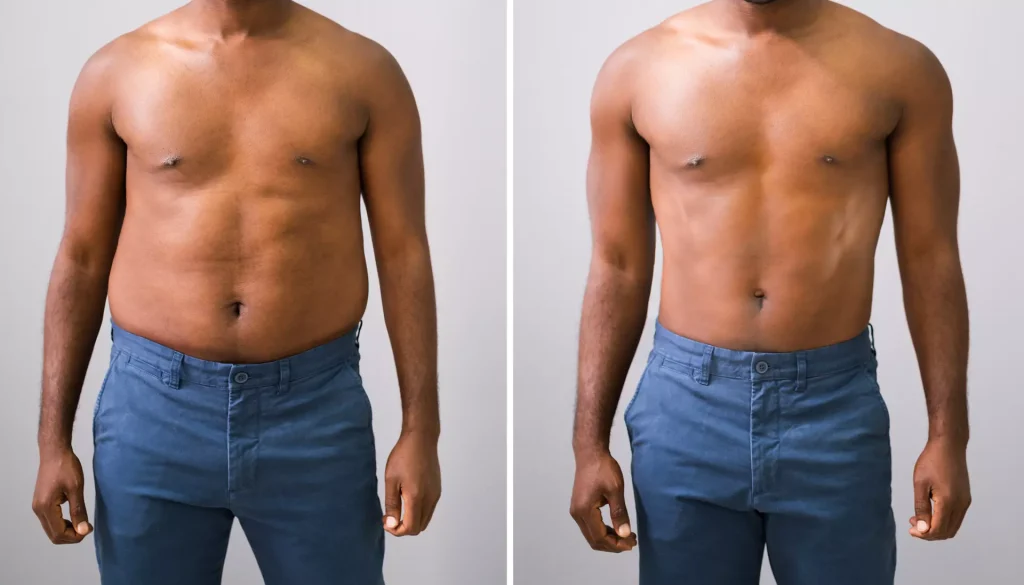
Orbera Balloon vs. Surgical Weight Loss Procedures
If you’re considering weight loss surgery, odds are you have a lot of questions. With so many surgical and non surgical options available, it can be difficult understanding which method is the best for you and your body. In this article we will look at the popular non-invasive weight loss balloon, Orbera, and how it compares to other popular surgical weight loss procedures.
The Orbera Weight Loss Balloon
Orbera is known as the #1 weight loss balloon. It is a popular non-surgical alternative to bariatric surgeries like gastric bypass and gastric sleeve. This weight loss balloon is specifically designed to help you eat less. It involves temporarily placing a smooth silicone balloon inside the stomach. The weight loss balloon enables you to feel fuller sooner, which ultimately helps you lose weight. In fact, studies on Orbera weight loss show it is 3000% more effective than diet and exercise alone.2 Other statistics show Orbera procedures cause 48% more weight loss than other gastric balloons.2
Benefits of the Non Surgical Weight Loss Balloon
Aside from being known as the #1 weight loss balloon available, Orbera has several other benefits including:
FDA approval· Non-surgical procedure· Removable, non-permanent· Easy, out-patient procedure· Lose weight quickly· Long-term results· Eat less and feel full more· Customized health plan and coaching· Minimal to no downtime required
Understanding the Orbera Procedure
The Orbera balloon is put inside the stomach during an easy, non-surgical 30-minute procedure. Before the treatment, the physician sedates the patient. However, the patient is awake throughout the process. The balloon is put into the stomach through the mouth via an endoscope. It inflates with safe saline to the size of a grapefruit.
The balloon remains in the stomach for 6 months, allowing the patient to lose significant weight. After 6 months, the balloon is removed the same way it was inserted. Once the balloon is out, the patient receives full support from their provider, helping them continue a successful weight loss journey after its removal.
Gastric Bypass Surgery
Gastric Bypass is a popular and often successful bariatric surgery. This surgical weight loss procedure shrinks the size of the stomach, so you can eat less and lose weight. The method involves a surgeon re-routing or bypassing part of your digestive system, so you don’t absorb as much food. There are different types of gastric bypass surgery, including Roux-en-Y gastric Bypass and Extensive gastric Bypass (biliopancreatic diversion).
The Roux-en-Y is the most common gastric bypass surgery. Surgeons perform this surgery through a small cut in the stomach. The surgeon then staples part of the stomach together or by vertical banding, limiting how much food you can eat. This method of gastric Bypass is less complicated and provides an easier recovery.
The Extensive gastric Bypass or Biliopancreatic Diversion is a more complicated surgery. First, the surgeon removes the lower part of the stomach. They then connect the small pouch to the small intestines’ last part.
Gastric Sleeve Weight Loss Surgery
The gastric sleeve surgery, known as gastrectomy, is a bariatric surgery procedure. It removes a large portion of the stomach, leaving behind a narrow “sleeve.” This procedure reduces the size of your stomach, restricts caloric intact, and reduces hunger signals. Much like gastric bypass, this sleeve surgery offers a way to help people with clinically severe obesity achieve effective weight loss.
The sleeve operation removes about 80% of the stomach. It leaves behind a tubular “sleeve” about the size and shape of a banana. This reduction in stomach size makes it simple to restrict the amount of food you can eat in one sitting, making you feel fuller for longer. This surgery also successfully reduces the hunger hormone your stomach procedures. As a result, it decreases your appetite and cravings, allowing you to eat less and lose more weight.
Orbera Balloon vs Surgical Weight Loss Procedures
Traditional bariatric surgeries like gastric bypass and the gastric sleeve are effective, but they are both also surgical procedures that are non-reversible. They alter a portion of the stomach or intestines. They also change the way the body absorbs nutrients and digests food.
While they each help people lose weight, they are both significant surgeries that produce life-altering side effects.
The Orbera balloon is like bariatric surgery in that it limits the amount of room available in the stomach to fill with food. However, unlike the surgeries, the Orbera balloon is entirely non-surgical. It also does not require surgery, incisions, scars, downtime, general anesthesia, or any other surgical drawback. Best of all, Orbera is not permanent and does not alter your internal organs.
Which Weight Loss Treatment is Right for Me?
As always, you should consult a medical professional to help determine which weight loss method is correct for you, surgical or non-surgical. Any weight loss procedure is a big decision, and no one should ever make it alone. Seek a professional’s help to determine which procedure is best for you, your body, and your goals.
Orbera Weight Loss Balloon in Harrison, NY & Naples, FL
If you want to avoid surgical procedures and see if the Orbera weight loss balloon could be suitable for you, contact a professional provider like Body Morph MD. We are located in Harrison, NY & Naples, FL. If you want to learn more about Orbera and how it can help you lose weight and improve your quality of life, contact us today by calling (914) 953-2955 - Harrison Office or (914) 953-2955 - Naples Office for a consultation.
